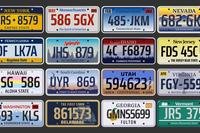We’ve all been surprised by expensive, unexpected car repairs. Whether it’s something as simple as a sensor malfunctioning or as intense as a failed transmission, mechanical breakdowns happen no matter how reliable your vehicle may be. And one thing we all can agree on: Mechanical repairs are expensive.
While reliability is an important factor in deciding what car or truck we buy, making sure our investment is protected should be equally as important. That’s why we get car insurance. Unfortunately, car insurance doesn’t cover mechanical breakdowns.
Even the most “reliable” vehicle brands can have mechanical issues, which is precisely why new cars come with a manufacturer warranty. But when that warranty quickly runs out, you can get similar protection for your automobile with a vehicle service contract.
Vehicle service contracts help you pay for unexpected mechanical breakdowns, such as engine or transmission failure, electrical issues, air conditioning and heating, and myriad other repair issues.
These repairs can cost hundreds to thousands of dollars. However, having a vehicle service contract allows you to pay a deductible or small percentage of the total cost of the repair. For a surprisingly low monthly payment, you can avoid the financial stress of unexpected repair bills.
Think of it this way — insurance covers your vehicle and helps cover repair costs in an accident, and a vehicle service contract helps cover repair costs for your car when it breaks down.
Sure, there’s plenty of criticism out there about the legitimacy of extended car warranty companies. But a reputable company can provide outstanding comprehensive coverage plans.
When considering vehicle service contract coverage options, it’s essential to keep a few things in mind:
- Always review the list of covered components and exclusions to ensure that the policy covers a wide range of expensive repairs and common issues.
- Take note of the deductible. Similar to health insurance, larger deductibles mean higher out-of-pocket costs upfront.
- Calculate the monthly cost against the price of repairs. If you get a vehicle service contract that only pays 25% of repairs, you still could be left with a hefty repair bill.
- Look for a company that handles all policy claims, billing and customer service in-house rather than outsourcing.
- To avoid overspending, choose a company that creates a personalized vehicle service contract for you.
- Verify that your vehicle service contract company’s claims team works directly with the repair shop to negotiate repair costs and make the most of your coverage.
Related: Get big military discounts on your car insurance. See our Auto Insurance Quote Comparison tool to get free quotes in minutes.









